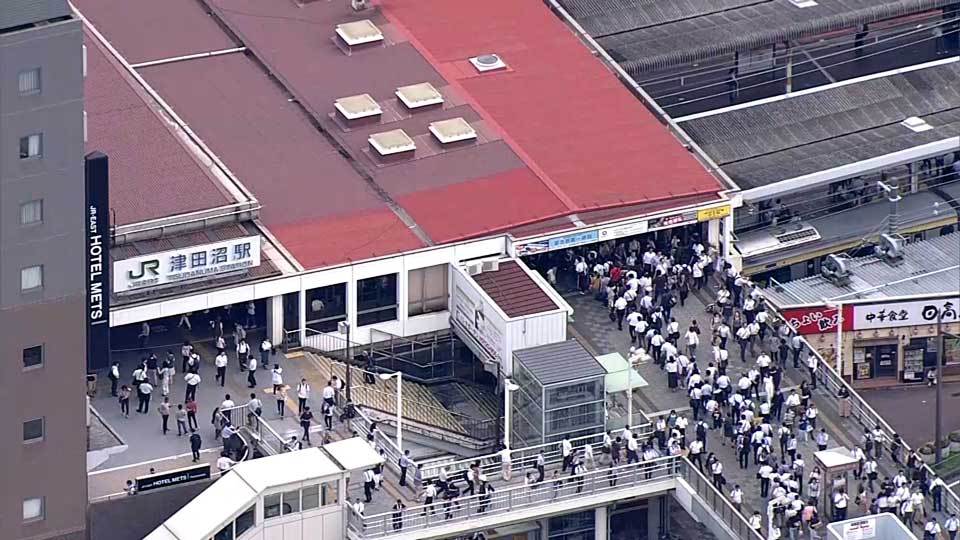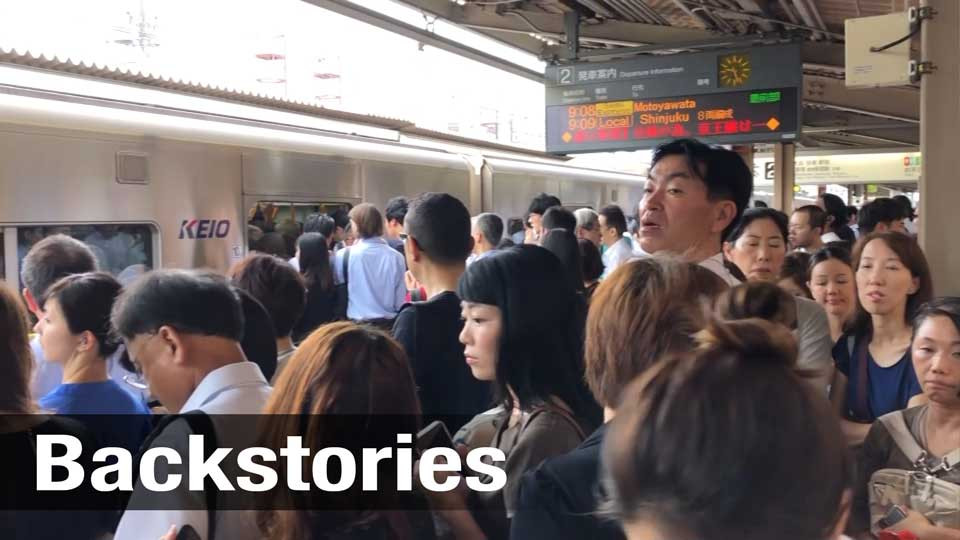East Japan Railway, known as JR East, announced at noon on Sunday afternoon that services on many lines would be suspended. Private railways also announced through social media and smartphone apps later in the day that services would be halted.
When another powerful storm struck Japan last September, many people could not get home because they were unaware the trains had stopped. Since then, the government has been urging railway operators to make such announcements as early as possible.
Business (not) as usual
Despite that, Monday morning saw long lines at train stations across the Greater Tokyo area. Some station buildings were surrounded by people desperate to get to work on time. But why?
It's a common mentality in Japan for people to get to work, no matter the circumstances. This time, many social media users complained about the lack of clear instructions from their employers.
A typical Twitter post said: "A good company tells you it's okay to stay home; a bad company orders you to come to work. A company in between doesn't contact you; the worst company tells you to make your own decisions."
Another denounced the Japanese habit of making a show of getting to work during disasters. It said, "People who don't need to go to work should stay home so that people who really must go can do so smoothly."

Work smarter
Hiroo Ichikawa, a professor emeritus at Meiji University who specializes in disaster and crisis management, points out that it is important to prepare alternative measures, not only for disasters, but also for other accidents such as outbreaks of disease.
He says: "It is not a time to work hard and go to the office in that situation. Skype and remote work are options. We should share information within companies about how to respond to emergencies."
Yu Hiroi, an associate professor at the University of Tokyo who specializes in disaster prevention in major cities, says railway operators need to be able to coordinate the resumption of their train services and how to communicate with each other in order to prevent people from crowding into stations all at once.
On the other hand, predetermined train stoppages should give people a chance to plan better. Hiroi says: "If trains stop, schools and some companies will be closed. That should also make people aware of how much danger is approaching and prompt them to review their disaster plans."
The confusion following the typhoon is highlighting the need for joined-up thinking when exceptional circumstances mean the daily commute isn't as smooth as we'd like.

